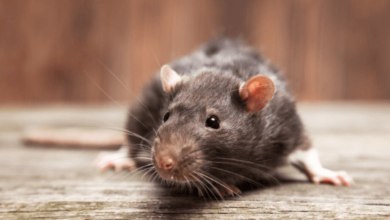wellhealthorganic.com : how to gain muscle @ well health organic

Introduction
Gaining muscle is a goal for many, whether for improved strength, better athletic performance, or simply enhancing one’s physique. At wellhealthorganic.com : how to gain muscle @ well health organic, we believe in a holistic approach to muscle gain that combines nutrition, exercise, and lifestyle adjustments. This comprehensive guide will walk you through the essential steps to building muscle using organic and natural methods.
Understanding Muscle Growth
Muscle growth, or hypertrophy, occurs when the fibers in your muscles increase in size. This process is stimulated by resistance training and supported by proper nutrition and recovery. Understanding the basics of muscle anatomy and how muscles grow is crucial for creating an effective muscle-building strategy.
Importance of Nutrition
Nutrition plays a pivotal role in muscle gain. The food you consume provides the building blocks your body needs to repair and grow muscle tissues. Without the right nutrients, your efforts in the gym will be less effective. Essential nutrients for muscle gain include proteins, carbohydrates, fats, vitamins, and minerals.
Protein and Muscle Building
Protein is essential for muscle repair and growth. It provides the amino acids necessary for muscle tissue synthesis. Consuming adequate protein from sources such as lean meats, fish, dairy, legumes, and plant-based proteins can significantly enhance your muscle-building efforts.
Carbohydrates and Muscle Gain
Carbohydrates are the primary source of energy for your workouts. They replenish glycogen stores in muscles, which is crucial for sustained performance. Healthy sources of carbohydrates include whole grains, fruits, vegetables, and legumes. Balancing your carb intake helps fuel your workouts and supports muscle recovery.
Fats and Muscle Growth
Fats are vital for hormone production and overall health. Healthy fats, such as those found in avocados, nuts, seeds, and olive oil, support muscle growth by providing long-lasting energy and aiding in the absorption of fat-soluble vitamins.
Vitamins and Minerals
Vitamins and minerals play a supportive role in muscle growth. They assist in energy production, immune function, and overall cellular health. Key vitamins and minerals for muscle gain include Vitamin D, calcium, magnesium, and B vitamins. Consuming a variety of nutrient-dense foods ensures you get these essential micronutrients.
Read Also wellhealthorganic.com:raw-banana-flour-benefits-and-uses
Hydration and Muscle Performance
Hydration is often overlooked but is crucial for muscle performance. Water helps transport nutrients to muscle cells and removes waste products. Staying hydrated before, during, and after workouts can improve muscle function and recovery. Aim to drink water consistently throughout the day.
Supplements for Muscle Gain
While whole foods should be your primary source of nutrients, supplements can help fill nutritional gaps. Common supplements for muscle gain include protein powders, creatine, branched-chain amino acids (BCAAs), and organic supplements like spirulina and chlorella. Always choose high-quality, natural supplements to support your muscle-building goals.
Workout Routines
Strength training is the cornerstone of muscle building. A well-structured workout routine that includes compound exercises like squats, deadlifts, bench presses, and pull-ups is effective. Tailor your workouts to your fitness level and goals, ensuring you progressively overload your muscles to stimulate growth.
Rest and Recovery
Rest and recovery are as important as the workouts themselves. Muscles need time to repair and grow stronger. Incorporate rest days into your routine and prioritize activities that promote recovery, such as stretching, foam rolling, and massage.
Sleep and Muscle Growth
Sleep is critical for muscle recovery and growth. During deep sleep, your body releases growth hormone, which aids in muscle repair and growth. Aim for 7-9 hours of quality sleep each night. Creating a sleep-friendly environment and maintaining a consistent sleep schedule can improve your sleep quality.
Consistency and Discipline
Building muscle requires consistency and discipline. Regular workouts, balanced nutrition, and proper recovery practices need to be maintained over time. Setting realistic goals and tracking your progress can keep you motivated and on track.
Monitoring Progress
Tracking your progress helps you understand what’s working and where adjustments are needed. Keep a workout journal, take regular measurements, and adjust your nutrition and workout plan based on your progress. This ensures you stay on the right path towards your muscle gain goals.
Common Mistakes to Avoid
Avoid common mistakes like overtraining, poor nutrition, and neglecting recovery. Overtraining can lead to injuries and burnout, while poor nutrition can stall your progress. Balancing your workouts with adequate rest and a nutrient-rich diet is key to avoiding these pitfalls.
Role of Mental Health
Mental health plays a significant role in muscle gain. Stress management techniques like meditation, yoga, and deep breathing can enhance your focus and motivation. Staying positive and maintaining a healthy mindset supports your overall fitness journey.
Read Also wellhealthorganic.com:easy-way-to-gain-weight-know-how-raisins-can-help-in-weight-gain
Organic Foods for Muscle Gain
Organic foods are free from pesticides and additives, making them a healthier choice for muscle gain. Foods like organic chicken, grass-fed beef, organic quinoa, and leafy greens provide clean nutrients that support muscle growth without harmful chemicals.
Holistic Approach to Muscle Gain
A holistic approach combines diet, exercise, and lifestyle changes. Incorporating organic foods, natural supplements, and stress management techniques creates a balanced and sustainable muscle-building strategy. This approach not only helps you gain muscle but also improves your overall well-being.
Case Studies and Success Stories
Real-life examples and success stories can provide inspiration and practical tips. Learning from others who have successfully gained muscle using organic and natural methods can motivate you to stay committed to your goals.
FAQs
How much protein do I need to gain muscle?
- The amount of protein needed varies based on your weight, activity level, and muscle gain goals. A general guideline is to consume 1.2 to 2.2 grams of protein per kilogram of body weight.
Can I gain muscle without supplements?
- Yes, you can gain muscle without supplements by consuming a balanced diet rich in protein, carbohydrates, and fats. Supplements are not essential but can help fill nutritional gaps.
How often should I work out to build muscle?
- Aim to work out 3-5 times a week, focusing on different muscle groups to allow for adequate recovery. Consistency and progressive overload are key to muscle growth.
What are the best organic foods for muscle gain?
- Some of the best organic foods for muscle gain include organic chicken, grass-fed beef, organic quinoa, beans, lentils, and a variety of vegetables and fruits.
How important is sleep for muscle growth?
- Sleep is crucial for muscle growth as it allows your body to recover and repair. Aim for 7-9 hours of quality sleep each night to support your muscle-building efforts.
What are common mistakes to avoid when trying to gain muscle?
- Common mistakes include overtraining, neglecting nutrition, not getting enough rest, and lacking consistency. Avoiding these pitfalls can help you achieve your muscle gain goals more effectively.
Conclusion
Gaining muscle requires a comprehensive approach that includes proper nutrition, effective workouts, and adequate recovery. By following the wellhealthorganic.com : how to gain muscle @ well health organic in this article and incorporating organic foods and supplements, you can achieve sustainable muscle growth. Stay consistent, track your progress, and prioritize your overall well-being to reach your muscle gain goals with Well Health Organic.





